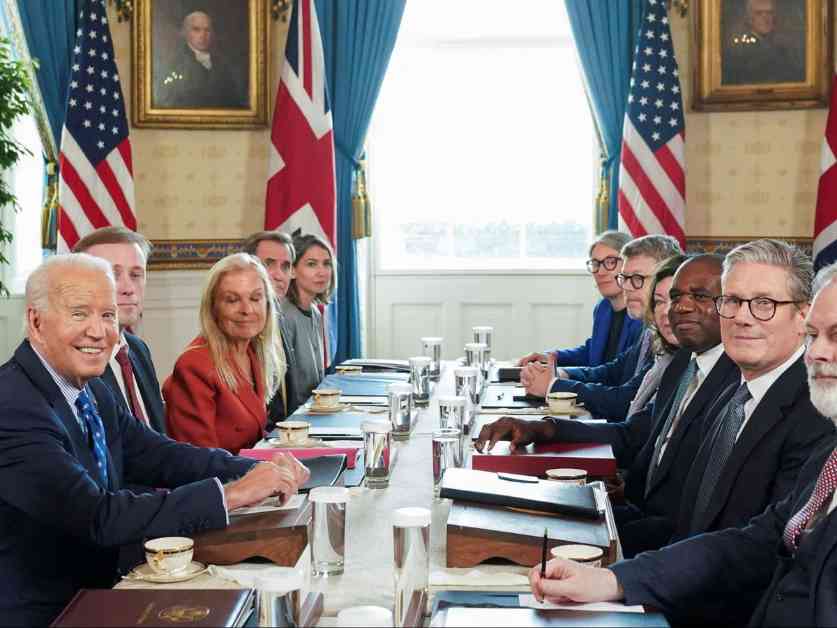Secret Nuclear Deal Raises Concerns in UK and US
Amidst growing tensions in the international community, reports of a secret nuclear deal between Iran and Russia have raised serious concerns in the UK and the US. Prime minister Keir Starmer and US president Joe Biden recently discussed their shared worries about the strengthening military cooperation between Iran and Russia during a summit in Washington. The discussions also covered key issues surrounding Vladimir Putin’s ongoing war in Ukraine, including reports of Iran providing ballistic missiles to Russia for use in the conflict.
According to sources on the British side, intelligence suggests that a deal may have been struck between Russia and Iran, in which the Kremlin would provide nuclear technology to Tehran. This revelation is particularly alarming as Iran continues to advance its uranium enrichment program, a critical step towards developing nuclear weapons. The implications of such a deal are significant, especially considering Iran’s history of non-compliance with international nuclear agreements.
Allegations and Denials
Reports of Iran supplying short-range ballistic missiles to Russia for use in the Ukraine war have been met with denials from both countries. The United States, Britain, France, and Germany have imposed additional sanctions on Iran, condemning the alleged weapon exports as escalatory. Iran has rejected the claims as “completely baseless and false,” while Russia has refrained from directly addressing the allegations, instead emphasizing its deepening partnership with Iran.
US secretary of state Antony Blinken recently raised concerns about Russia’s acquisition of new ballistic missiles from Iran, warning of potential implications for global security. The transfer of nuclear technology from Russia to Iran could have far-reaching consequences, not only for the region but also for other countries, including Israel and the US. The collaboration between Russia and Iran in military technology poses a significant threat to stability and peace in the international community.
Implications and Response
The potential nuclear deal between Iran and Russia has heightened pressure on the US and UK to reconsider their stance on allowing Ukraine to use long-range missiles against Russian military targets. Discussions surrounding the use of Britain’s Storm Shadows and US ATACMS missiles have been a focal point of the Washington summit. Former Conservative defense secretaries and ex-prime minister Boris Johnson have urged Prime Minister Starmer to ease restrictions on Ukraine’s use of these missiles, highlighting the importance of coordinated actions to support Ukraine in its conflict with Russia.
The breakdown of the 2015 nuclear agreement with Iran, following the US withdrawal under the Trump administration, has paved the way for increased uncertainty and volatility in the region. The potential collaboration between Iran and Russia in nuclear technology underscores the urgent need for international cooperation and vigilance to prevent the proliferation of weapons of mass destruction. As tensions escalate and alliances shift in the global landscape, the role of key players like the US and UK becomes increasingly crucial in shaping the future of international security.
In conclusion, the secret nuclear deal between Iran and Russia has sparked widespread concerns in the UK and the US, highlighting the complex geopolitical dynamics at play in the current global scenario. The implications of such a deal extend far beyond the immediate region, with potential consequences for global security and stability. As world leaders navigate these challenges, transparency, accountability, and coordinated action will be essential in addressing the evolving threats posed by nuclear proliferation and military cooperation among nations.












